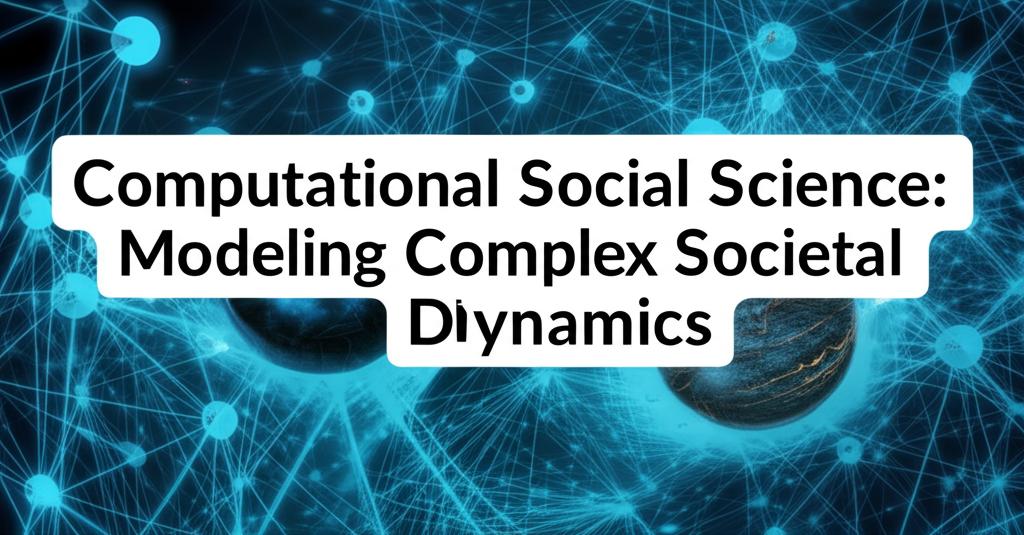Computational social science (CSS) is a rapidly evolving interdisciplinary field that leverages computational methods to explore, understand, and model complex social phenomena. It draws on the power of big data, advanced algorithms, and simulation techniques to investigate human behavior and societal dynamics at scales and with a precision previously unimaginable. This approach integrates methodologies from computer science, statistics, and the social sciences, opening new frontiers for research and policy-making.
At its core, CSS endeavors to decipher the intricate patterns and mechanisms that drive societal trends, group behaviors, and individual actions. The increasing availability of digital data, from social media interactions, online transactions, and digital footprints, provides an unprecedented resource for social scientists. By applying computational tools like machine learning, natural language processing, and network analysis to these vast datasets, researchers can uncover hidden correlations, track the spread of information (and misinformation), and model the evolution of public opinion in near real-time.
One of the key strengths of CSS is its ability to build and test models of social systems. Agent-based modeling (ABM), for instance, allows researchers to simulate the actions and interactions of numerous individual "agents" (representing people, organizations, or other entities) to observe emergent collective behaviors. These models serve as virtual laboratories for testing hypotheses about social dynamics, evaluating the potential impacts of different policies, and exploring future scenarios in areas as diverse as disease spread, urban segregation, cultural evolution, and economic behavior.
Recent advancements continue to push the boundaries of what's possible. Machine learning algorithms are becoming increasingly sophisticated in identifying complex patterns and making predictions from large datasets. Natural language processing is enabling deeper understanding of how people communicate and express themselves in textual data. The integration of these computational methods with established social science theories is leading to more nuanced and robust insights into how societies function and change.
The field is also addressing complex societal challenges. Researchers are using CSS to study climate change discourse, the dynamics of social movements, the spread of infectious diseases, and the impact of social media on political polarization. By providing data-driven insights and predictive models, CSS can help inform more effective interventions and policy decisions. For example, computational models have been used to assess the efficacy of public health measures during pandemics and to understand how misinformation proliferates online.
Furthermore, the interdisciplinary nature of CSS is fostering new collaborations between social scientists and computer scientists. This synergy is crucial for developing innovative methodologies and for translating complex computational findings into actionable knowledge for a broader audience. The emphasis is not just on collecting and analyzing data, but on developing theoretical frameworks that can explain the underlying principles of social systems.
Looking ahead, CSS is poised to play an even more significant role in understanding our increasingly complex and interconnected world. Ongoing research explores a wide array of topics, including the ethical implications of algorithms, the dynamics of cultural change, economic modeling, and the societal impacts of emerging technologies. As computational power and data availability continue to grow, so too will the potential of computational social science to illuminate the intricate dance of societal dynamics.

